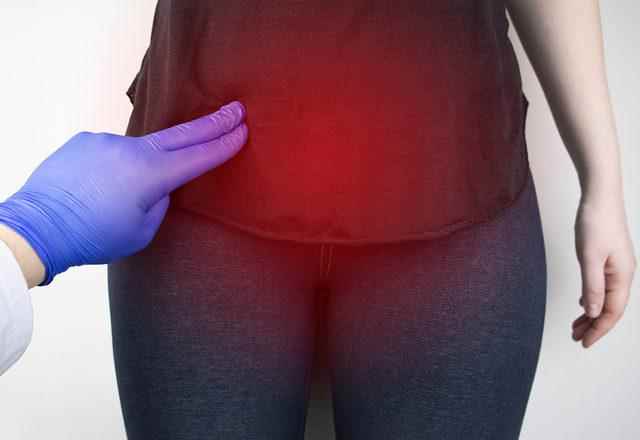Although gastroparesis, which is known as stomach laziness among the people, is very common, its symptoms are underestimated. However, gastroparesis progresses within 5-10 years, causing serious health problems and reducing the quality of life. exp. Dr. Ali Osman Buğdaycı stated that gastroparesis, which is defined as the delay in the passage of food from the stomach to the intestine, affects 4 percent of the population, and said, “Gastroparesis causes nausea, vomiting, abdominal pain and chest tightness that occur with meals in patients. As a result, patients experience weight loss due to nutritional deficiencies and a decrease in their quality of life. Due to the delay in the passage of the edible foods from the stomach to the intestine, initially only post-meal bloating is seen in the patients.
PROGRESSIVE STAGES OF THE DISEASE CAUSE SERIOUS WEIGHT LOSS
Noting that growth and sagging developed in the stomach over the years, Uzm. Dr. Buğdaycı said, “After this stage, more disturbing complaints occur in the patient. They become unable to relax without removing their food, and after each meal, severe cramp-like abdominal pain and chest tightness occur as a result of the enlarged stomach pressing on the diaphragm. Patients become afraid of eating because of these symptoms. Both vomiting, pain, fear of chest tightness, and regurgitation of a significant portion of what they ate cause serious weight loss and reduced quality of life in patients over time. It takes an average of 4 to 5 years for all signs of the disease to appear. The average time from bloating to weight loss in the first years is 5 years. The average diagnosis time in gastroparesis is generally more than 6 years.
TREATMENT IS FOR THE CAUSE
exp. Dr. Mentioning that almost all of the patients underwent gastroscopy once or several times, Buğdaycı gave the following information: “With the findings, they are treated for years with the diagnosis of gastritis, stomach esophagus reflux or ulcer, and the diagnosis of the patients is delayed. The most important step in the diagnosis of gastroparesis is to consider gastroparesis. The next steps are to detect gastric enlargement, gastric sagging, gastric emptying delay with simple barium radiographs (stomach duodenum X-ray). Subsequently, the diagnosis is confirmed by other tests that examine the stomach work. The next step after diagnosing gastroparesis is investigations to determine the cause. The treatment is completely oriented towards the cause.
WHY CAN’T BE DETECTED IN MOST PATIENTS?

Some causes of gastroparesis are easily treated with simple medications, while others may require gastric bypass surgery or dietary changes. Even with today’s information, the cause cannot be determined in nearly 40 percent of gastroparesis patients (idiopathic gastroparesis). In 30 percent of gastroparesis patients, the cause of gastroparesis is uncontrolled diabetes. Apart from these, rare inflammatory diseases and some rheumatic diseases may cause gastropresis. Among these diseases, gastroparesis in chronic inflammatory diseases that cause long-term inflammation in the stomach, duodenum and jejunum, resulting in damage to the stomach muscle and stenosis in the intestines, is treated in as little as 1 month with simple anti-inflammatory drugs.
EARLY DIAGNOSIS IS OF GREAT IMPORTANCE

However, nearly 70 percent of the cases are caused by chronic diseases such as diabetes that do not have a definitive treatment or gastroparesis cases of unknown cause. Dr. Buğdaycı said, “There is no effective drug treatment in these cases. While drugs are used in the early period, patients with end-stage symptoms often require gastric bypass surgery or endoscopic treatment methods. Therefore, early diagnosis of gastroparesis cases is of great importance. First of all, gastroscopy should be performed in every patient with post-meal bloating and reflux complaints. In all cases where gastric outlet stenosis, stenosis at the lower end of the esophagus or a large gastric hernia cannot be detected, a long (extend to the jejunum) endoscopy with medicated stomach and duodenal film should be performed to examine for gastric volume growth, gastric sagging and delayed gastric emptying. When findings in favor of gastroparesis are detected with this film, stomach accelerator drugs and diet may be effective in reducing the complaints of patients in early cases.
ATTENTION TO THESE SYMPTOMS

Gastroparesis is an important health problem that affects 4% of the population and causes nausea, vomiting, severe abdominal pain, chest tightness, decreased quality of life, severe malnutrition and weight loss within 5 to 10 years. Gastroparesis should be considered in every patient with stomach bloating, postprandial nausea, vomiting, and severe postprandial abdominal pain, and diagnostic procedures should be performed for it. In this way, with early diagnosis, patients’ complaints can be reduced with drugs, and cases that can be treated can be detected.
